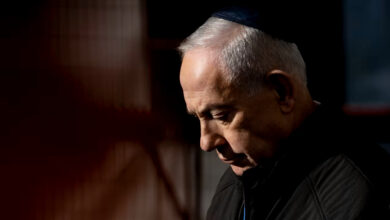
DUBAI (Reuters) – Iran’s currency hit a new record low on Sunday, dropping past 100,000 rials to the U.S. dollar as Iranians brace for Aug. 7 when Washington is due to reimpose a first lot of economic sanctions.
In May, the United States pulled out of a 2015 deal between world powers and Tehran under which international sanctions were lifted in return for curbs on its nuclear programme.
Washington decided to reimpose sanctions upon its withdrawal, accusing it of posing a security threat. It has told countries they must halt imports of Iranian oil from Nov. 4 or face U.S. financial measures.
On Sunday, the rial plunged to 112,000 on the unofficial market, down from about 97,500 rials on Saturday, according to foreign exchange website Bonbast.com. Other websites said the dollar was exchanged between 108,500 and 116,000 rials.
The rial has lost about half of its value since April because of a weak economy, financial difficulties at local banks and heavy demand for dollars among Iranians who fear the effects of sanctions.
The central bank blamed “enemies” for the fall of the currency and a rapid rise in the prices of gold coins and the judiciary said 29 people had been arrested on charges that carry the death penalty.
“The recent developments in the foreign exchange and gold markets are largely due to a conspiracy by enemies with the aim of exacerbating economic problems and causing public anxiety,” the central bank said in a statement read on state television.
Judiciary spokesman Gholamhossein Mohseni Ejei told state television: “29 people have been arrested for economic disruption and will be soon put on trial … More may be arrested tonight and tomorrow.”
“Many of them face the charge of ‘spreading corruption on earth’,” Ejei said, referring to a capital offence under Iran’s Islamic laws.
Besides the currency fall, the expected return of sanctions has triggered street protests including by bazaar traders usually loyal to the Islamist rulers, and a public outcry over alleged profiteering and corruption.
On Saturday, Ejei said 18 people had been arrested over alleged profiteering from foreign exchange dealings and the illegal importing of luxury cars.
U.S. President Donald Trump has called the agreement one of the worst deals ever negotiated but in a bid to salvage the accord, Iran’s European partners in the deal are preparing a package of economic measures.
But France said this month it was unlikely European powers could put the package together before November.
On Aug. 7, Washington will reimpose sanctions on Iran’s purchase of U.S. dollars, its trade in gold and precious metals and its dealings with metals, coal and industrial-related software.
Sanctions also will be reapplied to U.S. imports of Iranian carpets and foodstuffs and on certain related financial transactions.
Iran’s oil exports could fall by as much as two-thirds by this year due to sanctions, straining oil markets amid supply outages elsewhere.




